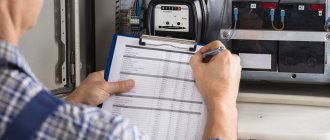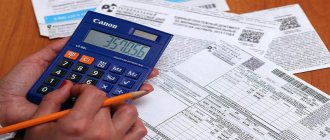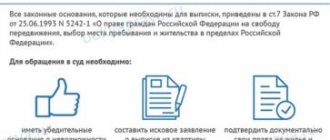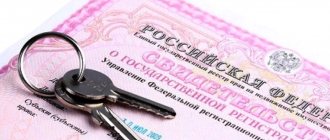Disputes about the amount and procedure for paying for housing and communal services are not uncommon. They usually arise between residents and the management company. Recipients of services are often dissatisfied with the quality of the service and want an appropriate reduction in cost.
Today, the forms of use of housing stock are quite diverse. The apartment may belong to one person, but another person will actually use it. Therefore, a dispute often arises about who pays utility bills: the registered owner or the owner.
Dear readers! The article talks about typical ways to resolve legal issues, but each case is individual. If you want to find out how to solve your particular problem , contact a consultant:
8 (800) 700 95 53
APPLICATIONS AND CALLS ARE ACCEPTED 24/7 and 7 days a week.
It's fast and FREE !
To understand this issue, you should study the procedure for providing utility services and the rules for their payment in force in 2020.
Basic conditions
A citizen who uses or owns residential premises is required to pay for a range of resources and services. The specific list depends on many factors: the area of the apartment, the intensity of resource consumption, the age of the house, the composition of the common property, etc.
Composition of the service
The general concept of utilities refers to a certain list of benefits that the tenant uses:
- water supply;
- water heating;
- sewerage (water disposal);
- electricity;
- gas, if such a resource is used;
- heating in winter;
- removal of solid waste;
- elevator operation.
The payment for future major repairs is special. The owner of the premises is obliged to regularly deduct a certain amount for this event.
You are also required to pay money for the maintenance of the entire house:
- current repairs of common areas;
- cleaning stairs, elevators, areas near apartments;
- maintenance of intercom and entrance doors;
- maintenance of general building communications;
- cleaning the local area;
- roof maintenance and repair;
- other similar works.
If there is an HOA in the house, then most likely the residents are obliged to pay the labor of the employees of this organization. For this purpose, mandatory contributions in a certain amount are introduced.
What the law says
The entire complex of housing relations is regulated by the Housing Code of the Russian Federation. This regulatory act contains section 7, which is devoted to the issue of accrual and payment of utility services.
According to the provisions of the code, payment consists of the following parts:
- payment for the use of the premises, if the apartment is for rent;
- utility fees;
- payment for the maintenance of the apartment (including for consumed resources).
Renting premises can be social or commercial. The cost of living depends on who the owner is.
The division of housing and communal services into points 2 and 3 is easy to explain using the example of cold water supply. Utility service – supply of water to the apartment. It involves servicing pipes, meters, pumps, quality control, etc. Water consumed by the resident is paid separately.
Also approved was Decree of the Government of the Russian Federation No. 306 of May 23, 2006, which sets standards for resource consumption for apartments and for the maintenance of common property in apartment buildings. The provisions of this document regulate the procedure for calculating the resources required to maintain a house and recalculating their cost per number of residents.
Payment of utility bills through Sberbank is possible in three ways: mobile banking, through a terminal or through a cash desk. Why do you need a certificate of no debt on utility bills? Read on.
What to do if one of the owners does not pay
If the residential premises are in shared ownership, the burden of maintaining it and paying for utilities falls on each of the housing owners in proportion to the size of the owned share under Art. 249 Civil Code. The owner of a ½ share in the ownership of an apartment must pay ½ of the utilities and other mandatory payments, regardless of whether he lives in the premises he owns and whether he uses utilities.
This is important to know: Documents for subsidies for utility bills
If such a co-owner refuses to maintain a share of the common property or does not participate in paying utility bills without an agreement, other owners have the right to share personal accounts with him.
Note!
Following the logic of Art. 155 of the Housing Code, each of the owners of shares in the ownership of housing may require the management company, HOA, housing cooperative, utility service provider to enter into an independent agreement for the supply of utility resources, management, and maintenance of apartment buildings. This gives the right to pay for residential premises and utilities on the basis of a separate payment document, in proportion to the share of ownership.
To conclude such an agreement and separate personal accounts, it is enough to contact the management company, homeowners association or resource provider with a free-form application. After such a division, the cost of the communal apartment in the receipts of each of the owners will be proportional to his share, and the owner who refuses to participate in the maintenance will accumulate personal debt.
Coming of obligations
An important aspect is the moment after which a citizen becomes a debtor of service organizations. Many people think that they are obliged to pay for services when they receive a corresponding receipt.
But Article 153 of the RF Housing Code establishes a different procedure:
- the tenant of the apartment must pay for housing and communal services from the moment the relevant agreement is concluded;
- owner of the apartment - from the moment ownership rights arise (after signing the act of transfer of the apartment from the developer or housing cooperative);
- developer from the moment the house is put into operation until the apartments are handed over to the owners.
Article 153. Obligation to pay for residential premises and utilities
The person who has ownership rights to the property is required to pay for major repairs. At the same time, according to Part 3 of Article 169 of the Housing Code of the Russian Federation, deductions for major repairs begin 8 months after the approval of the corresponding regional program in which the house was included.
Article 169. Contributions for major repairs of common property in an apartment building
Utility payments for shared ownership...
Accrual of penalties on the total amount of debt; currently the penalty is equal to 1/300 of the refinancing rate of the Central Bank of Russia; Limitation of the supply of utility resources; allocation of a certain amount of housing and communal services resources during the day; Disconnection of an apartment from utilities; the supplier completely stops the supply of electricity, heat or gas to the residential premises of the owner who has long-term debt for housing and communal services Eviction is applied to persons living in municipal apartments and who have not paid utility bills for 6 months Debt collection through the courts The management company or service providers have the right to file claims in the courts of general jurisdiction Is eviction possible? If there is a long absence of funds being received into the debtor’s personal account, it is permissible to use an extreme measure of influence - eviction.
Required documents
Maintenance of the house and supply of resources is carried out by management companies. These organizations enter into contracts with companies that produce electricity, collect and filter water, neutralize and dispose of waste, etc.
The selection of a management company is made at a general meeting of residents. A specific person cannot refuse any service or independently choose a service organization.
The obligation to pay arises on the basis that the citizen uses the residential premises and the management company has provided him with a certain service. Possession or use is confirmed by the information contained in the Unified State Register, information about the place of registration or concluded rental agreements.
Data on services provided is confirmed by approved standards, meter readings, certificates of work performed and other similar documents.
Eviction of one of the owners
When one of the shareholders does not pay utility bills, questions arise about his eviction from the living space. Co-owners often cannot resolve this issue on their own, so they have to involve a management company.
Penalties (a type of penalty) begin to accrue after 30 days of non-payment of rent debts. And they are equal to 1/300. If the owner does not pay for three months, the fine will already be equal to 1/130 of the refinancing rate.
If a child under 18 years of age is not registered in the apartment, the management organization has the right to limit or turn off the supply of utilities (switching off hot water, electricity).
If a citizen pays off the debt, the supply of utilities will resume, and penalties will no longer be accrued. Otherwise, the matter will be resolved through court.
According to Act 3 of the Housing Code of the Russian Federation, no one can evict a tenant from his property and restrict access to utilities, except for representatives of the management company. But the Criminal Code does not have the right to evict a person from an apartment, even if he is a debtor. Only the court has the right to do this.
If the owner does not live in the apartment for more than 6 months, he can be discharged. The reason for eviction is rent arrears.
Important! If the case reaches the court, which gives a positive answer, the owner must vacate the living space within 2 months. If he does not meet the allotted time, his eviction will be controlled by government officials. Article 31 of the RF Housing Code specifies the procedure for eviction of a debtor.
For other owners, you need to know that no one can force you to pay other people’s bills for using utilities.
General list
There are several persons who are required to pay for housing and communal services in accordance with the law:
- apartment owner;
- developer - from the moment of commissioning until the transfer of housing to the buyer;
- member of a housing cooperative - after the cooperative has provided an apartment;
- tenant of state or municipal premises from the moment of conclusion of the relevant agreement.
The above list does not include citizens who are simply registered in the premises.
How to pay for utilities if there are two owners?
Whether or not you have anything to do with your father’s life does not matter, the main thing in this situation is that you are also the owner of this apartment, and, therefore, the Criminal Code may present you with a demand for debt repayment in court, but then various enforcement actions are indeed possible (seizure of bank accounts, debtor’s property, etc.). Therefore, in this situation, it is advisable for you to pay off the entire accumulated debt, keep the payment receipts and, in turn, go to court with a claim against the second owner and demand recovery of half the cost of housing and communal services. This can be done within the last three years; this is the statute of limitations established in this case. Further, in accordance with Art.
Who in practice has to pay utility bills: the registered owner or the owner
The right of ownership presupposes the ability to use, own and dispose of real estate. At the same time, different people can own and use the premises.
The variety of legal relations in this area creates many problematic situations, for the solution of which it is necessary to study regulations.
Today, a citizen can provide his living space for the use of other people for a fee or free of charge. The procedure and living conditions are at the discretion of the owner.
Therefore, we can clearly answer the question of who pays utility bills: the registered owner or the owner. The management company issues receipts to the owner, and it is he who is responsible for timely payment.
In the case where the owner wants to shift the burden of payments to the registered person, he must draw up a written agreement to this effect.
Fractional ownership
Many residential premises are owned by several people at once. Property is divided into shares in the process of privatization, inheritance or after divorce between spouses. In any case, every owner must pay for utilities.
In practice, it is very rare for people to make payments separately. Typically, the transfer of funds falls on one person, to whom others compensate for the expense.
In some cases, the owner of the share does not live in the apartment. Often citizens in such a situation believe that they are not obligated to pay rent. And the costs must be borne by the person who actually uses the housing.
This position is incorrect. The owner pays in any case, whether he lives in the premises or not. Then the owners of other shares will have to pay extra for the defaulter.
A citizen cannot simply divide the cost of using an apartment and pay only his part. In this case, a debt will arise to the management company. The only way to force the other co-owner to pay is to go to court and attach copies of payment documents.
Personal accounts section
If it is not possible to reach an agreement regarding joint payment for services, co-owners can split the bills.
There are 3 options for this solution:
- several receipts and transfer of money to 1 personal account;
- conclusion of an agreement and joint payment on 1 receipt;
- creation of several separate accounts for one residential premises.
To split the account, you need to contact the management company. There he will carry out calculations so that the costs are divided according to the size of the shares belonging to each of the applicants.
If one of the owners does not agree with this solution to the problem and refuses to file an application, then they should go to court.
Liability for non-payment
What responsibility awaits apartment residents if one of the owners does not pay utility bills?
If you pay for services using a separate receipt, you will be able to prove that you are fulfilling your obligations in full. The debtor will be personally liable.
Interested in the new law on utility bills for 2020? See here.
Is it possible to evict?
According to Article 3 of the Housing Code of the Russian Federation, no one has the right to evict from housing or limit the right to use premises or receive housing and communal services, except for structures authorized to do so.
The governing body does not have the right to evict citizens who are debtors. Only the court can do this. But please note that no one can force you to pay off someone else’s debt.
If the owner does not have the right to use the premises in accordance with regulations, or such a decision is made by the court, then he must vacate the premises (Article 35 of the Housing Code of the Russian Federation).
In the event that a citizen does not evict within the time period established by law, the decision to evict will be controlled by the authorized bodies.
The procedure for eviction is stated in Article 31 of the Housing Code of the Russian Federation. In case of termination of membership in cooperatives, the person will have to vacate the premises within 2 months from the date of such decision. If the cooperative is liquidated - from the moment of liquidation.
Recalculation if not staying
Certain types of utilities (which can be calculated in accordance with consumption standards) may be paid recalculated for the period when a person does not live in the premises.
The owner of an apartment share can make a recalculation for the time when he was absent or he actually has a different place of residence (in case of divorce, moving to another premises).
Recalculation is made when submitting an application from a citizen who does not live in the apartment, upon presentation of a certificate of temporary registration in another facility.
This is important to know: Sample cancellation of a court order to collect debts on utility bills
The citizen attaches a photocopy of the receipt for repayment of the debt for utility bills regarding the premises where he lives.
You can recalculate at:
- water (cold and hot);
- gas;
- electricity;
- sewerage
If a certificate of residence in another apartment is not submitted, the person will be considered to live at the place of registration. Then receipts will arrive according to the number of homeowners.
Review of other situations
If an apartment is rented out under a commercial lease agreement, then such an agreement should determine who bears the costs of paying for housing and communal services. As has already been clarified, the default responsibility lies with the owner.
The apartment owner provides his premises, furniture, and household appliances for use for a fee. If the contract does not specifically stipulate that the tenant is also obliged to pay for utilities, then it will be impossible to assign such an obligation to him later.
If you are required to pay by law, then you should transfer the funds. And only then it will be possible to analyze how to involve the apartment tenant in participating in expenses.
In case of non-stay
In some cases, it is possible that a citizen was registered in an apartment, but actually lived at a different address. In this case, utility bills were calculated in the general manner, but not all services were actually provided.
In this situation, you can apply for a recalculation. In this case, you will need to document the use of another residential premises.
Even if no one is registered or living in the apartment, you will still have to pay.
Deductions should be made to:
- major repairs;
- maintenance and repair of common property;
- heating of common areas;
- cleaning stairs, elevators, corridors, areas in front of apartments;
- heating of common areas;
- other services and works.
If we are talking about the winter period, and the apartment is not equipped with individual heat energy meters, then you will also need to pay for heating.
Documents for resolving the issue through court
In order to resolve the issue through the court, it is necessary to file a statement of claim. Requirements for a statement of claim - it must be correctly drawn up, the request must be clearly expressed, the requirements are clear.
According to Article 131 of the Civil Procedure Code of the Russian Federation, the statement of claim must indicate:
· name of the judicial authority where the claim is filed;
· full details of the plaintiff. Full Name;
· passport details of the plaintiff;
· address of the plaintiff’s place of residence;
· if the plaintiff is an organization, then its full name and location;
· full details of the defendant. Full Name;
· passport details of the defendant;
· address of the defendant’s place of residence;
· the cost of the claim (the entire amount of the claim is indicated);
· the circumstances that are the basis for the plaintiff’s claims are described in detail;
· all evidence supporting the plaintiff’s claims is provided;
· list of attached documents;
· date of filing the claim, signature of the plaintiff.
The list of attached documents may include:
· receipt of payment of state duty;
· documents confirming ownership of the apartment;
· copies of receipts for payment of housing and communal services;
· documents confirming an attempt to resolve the dispute pre-trial (this may include copies of a notice of an existing debt, a warning about disconnecting utilities, etc.);
· documents with debt calculations;
· all documents confirming the sending of documents by mail (receipts, inventories, etc.);
· contact details of the parties;
· other information that is relevant to the case.
After the statement of claim has been filed, after some time, the court must notify whether the case has been accepted for consideration or rejected. The reason for refusal may be:
· incorrect filing of a claim,
· lack of any documents,
· lack of legal grounds for opening court proceedings;
If one of the owners does not pay for utilities.
The former cooperative member is given 2 months to do this, during which he will have to leave the premises. Recalculation for temporary absence In situations where one owner of a home permanently resides in it, and the other owners actually have another place of residence, it makes sense to recalculate the accrual of utility bills. An owner who does not live in a shared apartment can contact the management company with an application for recalculation. To do this, he must provide the following documents: Documents of title for a share in the common property A certificate confirming the actual place of residence of the citizen Paid receipts for previous months Recalculation is not made for the entire list of utility services provided, but only for certain types.
Dependence on the number of residents
Most payments are calculated based on meter readings or the total area of the apartment. The number of residents does not affect the amount of payment.
If there are no meters for electricity, water or gas consumption, then the calculation will be made according to the standards. And in this situation, the number of people registered in the apartment will affect the calculation base.
In any case, the number of residents will affect the total cost of services such as solid waste removal, elevator use and staircase lighting.
Payment of taxes
An apartment is a separate unit of a residential building, which is subject to taxes. Every year, the owner of the apartment receives receipts for paying the building tax. This tax is calculated based on the total apartment area. If the apartment is in shared ownership, then the payment is divided in proportion to the shares.
It should be noted that minor homeowners also receive taxes at the same rate as adult owners. Responsibility for paying them automatically falls on the parents. In case of non-payment, the amount will increase and in addition a penalty will be added. Upon reaching the age of majority, the tax service obliges the owner through the court to pay all debts, including penalties.
If a person owns not one apartment, but several, then the tax interest rate coefficient changes upward. The owner is required to pay taxes on all of his shares of space and on property that belongs only to him.
Since the apartment building is located on land, the state charges land tax accordingly. It is calculated based on the area of land on which the house is located and is divided proportionally between the owners. It can be noted that the more floors in the house, the lower the amount of taxation for land per share of each apartment.
This is interesting: How to restore SNILS if lost: 7 useful tips
Recalculation nuances
If a citizen did not temporarily live in the apartment, then he can apply to the Criminal Code to reduce payments. In this case, you must pay all invoices in good faith.
A citizen may be permanently located:
- at the place of temporary registration;
- business trip;
- in another state;
- in a hospital, sanatorium, boarding house;
- in the country;
- stay in a hotel, inn, campsite or other similar establishment.
In all of the above cases, a person can request an appropriate document stating that he lived for a certain time not at his place of permanent registration.
Payment orders must be attached to the certificate. A recalculation will be made based on the submitted documents. The money contributed will be applied towards future expenses.
If a person cannot reliably confirm his absence, then the amount of payment for previous months will not be changed.
Determining the procedure for paying utility bills in shared ownership
The obligation to pay for utilities is specified in Articles 30 and 153 of the RF Housing Code. Regardless of who exactly lives in the apartment/room (the owner or the tenant), he is obliged to pay utility bills on time and in full. Moreover, even if a person does not actually live in the apartment/room in question, he is still required to pay for utilities.
Payments for shared ownership
Most often, the problem arises if the apartment is in shared ownership. Such a procedure for owning real estate implies the need to bear responsibility for housing exactly to the extent that a person owns.
Recalculation of payments
Based on RF PP No. 307, any owner of real estate (including shares) has the right, if he does not live in the premises for a long time (or does not live in principle and does not rent it out), to apply for a recalculation of payments. Thanks to such a system, you can save significantly and avoid the occurrence of serious debt and, as a result, possible problems with co-owners.
Procedure
- Prepare documents proving the fact that the person does not live in his share of the apartment. Among them there should be documents stating that the same owner lives in another place and regularly pays for utilities there.
- Prepare an application for recalculation (see sample below).
- Send documents and application to the management company (management company).
- Wait for recalculation and pay for services according to the new conditions.
Documentation
An approximate list of documents for recalculation:
- Documents confirming the fact that a citizen is undergoing treatment in a sanatorium, on a business trip, a tourist trip, and so on.
- Tickets for train, plane, etc.
- Bills from hotels, motels, hostels.
- Certificate of temporary registration at another address.
- Receipts for payment of utility bills at another address.
This is important to know: How to divide your personal account according to payments in a communal apartment
Application for recalculation
Deadlines
Review of such applications takes about 5 days. If there is no answer within this period, you can go to the Criminal Code and clarify the fate of the document, but there is no point in swearing or demanding to work faster since strict deadlines are not established by law. But if the delay is too significant (for example, 1 month or more), you can go to court and attach to the claim your copy of the application with a note about filing with the Criminal Code.
Penalty for non-payment of utilities
Failure to pay or untimely payment of utility bills involves the accrual of a penalty in the amount of 1/300 of the refinancing rate of the Central Bank of the Russian Federation (clause 14, article 155 of the Housing Code of the Russian Federation). As of January 14, 2019, the refinancing rate is 7.75%. Thus, 1/300 part is approximately 0.026% per day.
However, penalties are not assessed immediately, but rather 31 days after the payment deadline has arrived. From this moment on, a penalty in the specified amount will be charged on the debt for 90 days. Starting from 91 days, the penalty amount will increase to 1/130 of the refinancing rate (0.060%)
Rules of law
The question of what utility bills the owner must pay in full is regulated by the provisions of Article 153 of the current Housing Code of the Russian Federation. All citizens and institutions, without exception, must pay fees for premises and energy services. Such measures must be carried out in a timely manner due to the fact that sanctions may be imposed for violation of payment deadlines.
This is interesting: Europrotocol: step-by-step instructions for filling out
As for non-privatized property, the employer undertakes to pay for utility services from the moment the social rental agreement is concluded. When renting real estate under classic contracts, each person must begin monthly payments for services immediately after drawing up the relevant lease agreement.
Share owners who are members of local housing cooperatives begin payment from the day the housing property is provided. The costs of providing services to new buildings become relevant after a special act or any other supporting document is handed over to the owner.
Reducing costs for the services in question can be achieved by installing individual reading devices. This will help establish the fact of minimal water or gas consumption.
What utility bills are the owner required to pay?
In an apartment building, the largest share of payments is occupied by utility payments, including amounts for the maintenance and repair of the property. In accordance with recent amendments to the law, an additional savings contribution for major home repairs was included in the receipt.
In situations where the house has several floors and there is an elevator, the owner of a separate residential premises undertakes to pay a certain amount for the technological maintenance of the elevator, regardless of whether the citizen uses it or not.
Residents of the first floors fall under an exceptional category of persons who may not pay such a contribution, but consensus on this issue is reached only at a general meeting.
Each specific service organization enters into an agreement for the provision of energy services only with the current owners of the apartments, who, in turn, can confirm the right to ownership.
If the requirement to repay debt obligations for housing and communal services is ignored, representatives of the housing service transfer the claim to the highest court authorities. The owner will also be the defendant in the claim.
Read our article about deciphering utility bills.
Property without registration: what utility bills to pay
The apartment has two owners. Personal accounts are separated, but this is not a communal apartment, but shared ownership of one property; everyone simply pays their own bills. The first owner is registered in this apartment. The second one is registered at a different address, but he only has a share in this apartment. What housing and communal services must this second owner pay? Due to the fact that he does not live in an apartment, he does not use many services - gas, hot water, hot water, heating, electricity.
Will connecting personal accounts change the situation?










